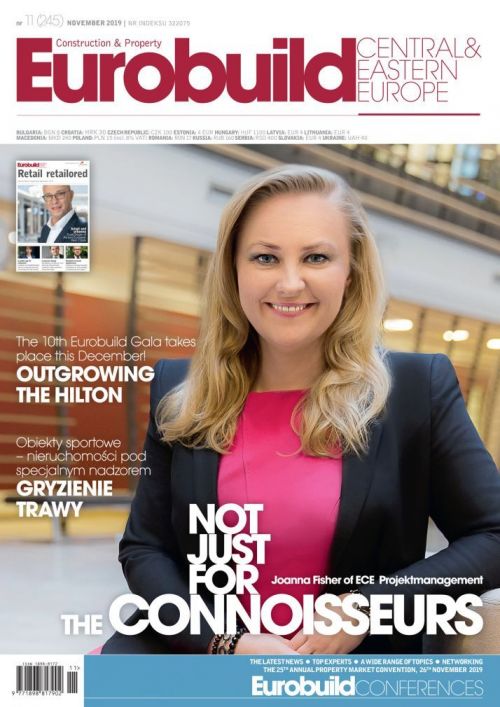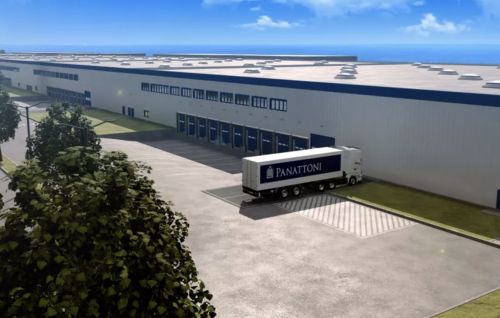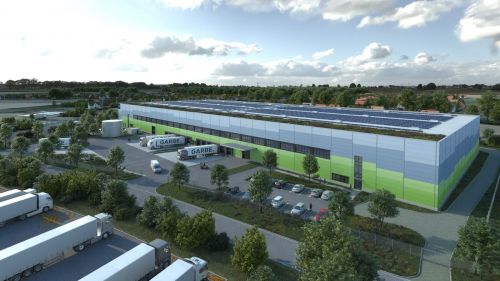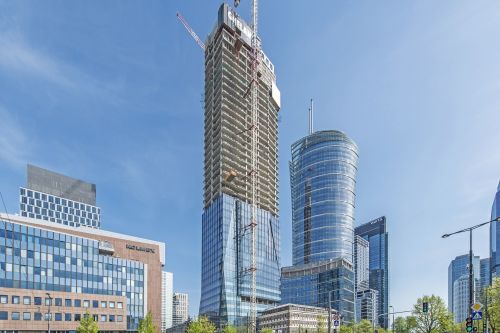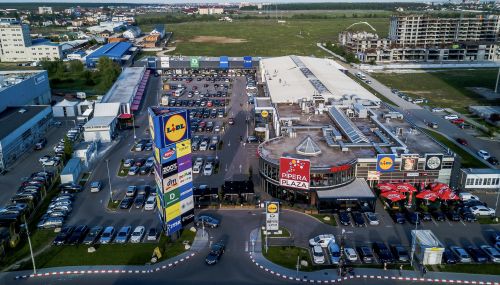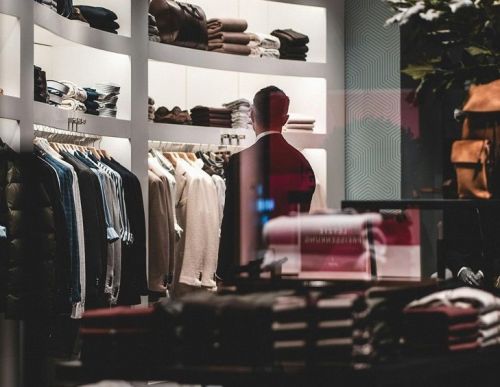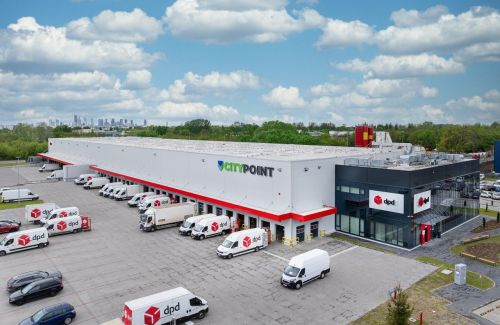Łódź you take a closer look?
Events“We approach revitalisation in an extremely general manner – we not only think about the city’s infrastructure, but give it a much wider scope. We simply want people to live well here. A great deal has been happening when it comes to revitalisation initiated by the city, but domestic and EU subsidies are not limitless, which is why we try to work hand-in-hand with private investors. Revitalisation is a priority for the city’s authorities, but we have to remember that our goals and those of private capital do in fact cross over – and that’s what we want to talk about here today,” announced Krzysztof Piątkowski, a deputy mayor of Łódź, in the opening speech of the meeting. Then it was the turn of Olle Zetterberg – currently a senior advisor at Olle Zetterberg AB who has for many years been working with local authorities and other institutions to attract business to Stockholm – to take his place on the rostrum. How can rundown inner city areas be revived? In his opinion, the question that should first be asked is: who will the changes be carried out for? Politicians or the businesses? Tourists or the local community? Or maybe potential new residents...? Examples of how to successfully transform neglected districts were then given of a number of such projects from across Europe by the expert, who took us on a trip from London, via Hamburg and Berlin, to the Swedish capital.
The first discussion panel of the conference was entitled ‘Glass or Brick - That is the Question?’ The moderator, Colliers International’s regional director in Łódź, Marcin Włodarczyk, immediately took issue with the rather mischievous assumption in the title of the panel, arguing that it represents a false dichotomy, since a renovated historic building can feature large amounts of both and still be turned into something thoroughly modern. Adam Brzostowski of Stara Drukarnia hit the spot by summing up the subject in the following way: brick and glass are inter-dependent – brick is a beautiful woman and glass is the jewellery.
After the coffee break, it was turn of Mateusz Sipa, the vice director of the business development and international relations bureau at the city of Łódź Office, to address the conference in his introduction to the panel entitled ‘Why do Historic Buildings Tempt Investors?’ He noted that around twenty revitalisation projects have been carried out in Łódź not by professional developers with private capital, but by non-real estate professionals driven by their local pride and the desire to leave the city a legacy.
After the presentation, it was time for a marathon question-and-answer session with Klaus Koponen, the regional manager for Poland and Finland at IWG, which is developing the Regus and Spaces network of serviced and coworking offices. In the crossfire of questions it came to light that Klaus gets up at 6.30am each day, when his dog, impatient for his morning walk, always wakes him up. He’s an ice hockey coach – a sport his sons love to play – and so combining the roles of father and coaching his sons is not always easy. We were also told that it’s the standard of the building that’s more important for Regus rather than whether it’s made of glass or brick – in Łódź the company chose a historic building because it actually met the required modern standards. Although the company is cautious about the future, it remains relaxed about the forecasts for a slowdown, since throughout the many decades of its existence it has had the advantage of being able to withstand a succession of global crises, due to its vast experience and the scale of its activities.; Klaus also informed us that Spaces is opening its second location in Poland this autumn – in Wrocław – and announced that the company is planning several more openings in the near future.
After this high-octane segment of the conference, it was time to slow down and savour the cuisine of the à la Vienna House Andel’s Łódź restaurant. After lunch the pace picked up once again thanks to the speakers on the ‘A Room for Rent’ panel, who related the advantages, the potential but also the difficulties in doing business in the private rental and student halls sectors. Paweł Rudiak, a senior consultant in the capital markets department at CBRE, discussed, among other topics, what to focus on when going ahead with such an investment. Is the supply too high in this segment? Are provincial and even smaller towns also attractive locations for this type of business? It turned out that both the PRS and student halls are something of a goldmine with rates of return of 12 pct or higher – and there are opportunities for greater profits in smaller cities and even small towns. “We often like to go against the grain and invest in smaller towns. For instance, we are building in Piła, where around 200 units are being developed. Our practice shows that we can expect some very healthy rates of return in such towns where there is a huge hunger for new projects and basically everything that is suitable for living in is being snapped up. It’s the greater mobility of the labour force, including workers from abroad, that is the engine for all this. Very small towns are also highly attractive, such as Żnin, Siemiatycze and others. Projects are sold standing in these places. And in Eastern Poland a great deal of real estate is bought by people who work abroad,” pointed out Władysław Grochowski, the CEO and co-owner of Arche.
After that very animated discussion, it was time for another that motored on at the same giddy pace and with no less emotion. The ‘Łódź as a Talent Mine’ panel was moderated by Andrzej Szczepanik, a regional markets associate in Colliers’ Łódź office. The panellists went on to face such questions as: Is this an open-cast mine or do you have to dig deep underground to find the talent? And: What is the city’s labour market like compared to the rest of Poland and other countries in the region? According to Kamila Woźniakowska, the general manager for Poland at Capita Customer Solutions, the volume of talent in Łódź just keeps growing, but the competition for employees has also been getting fiercer: “This is leading to increased employee turnover, but it is also encouraging employers to try harder – they are investing in offices with better standards and locations. Łódź was once seen as a cheap location, but now it is the quality that is drawing people in, and the price factor has been pushed into the background,” she insisted. This was not the end of the Łódź REdiscover conference. The workshops in the Museum of the Factory and a walk around Manufaktura were still waiting for those still in attendance, giving a glimpse into an ordinary working day in Łódź’s textile factories of more than a century ago. In the evening, the guests were able to exchange comments, indulge in their own discussions and make new business contacts in an informal atmosphere during dinner at the Bubamara restaurant in the Manufaktura complex.























